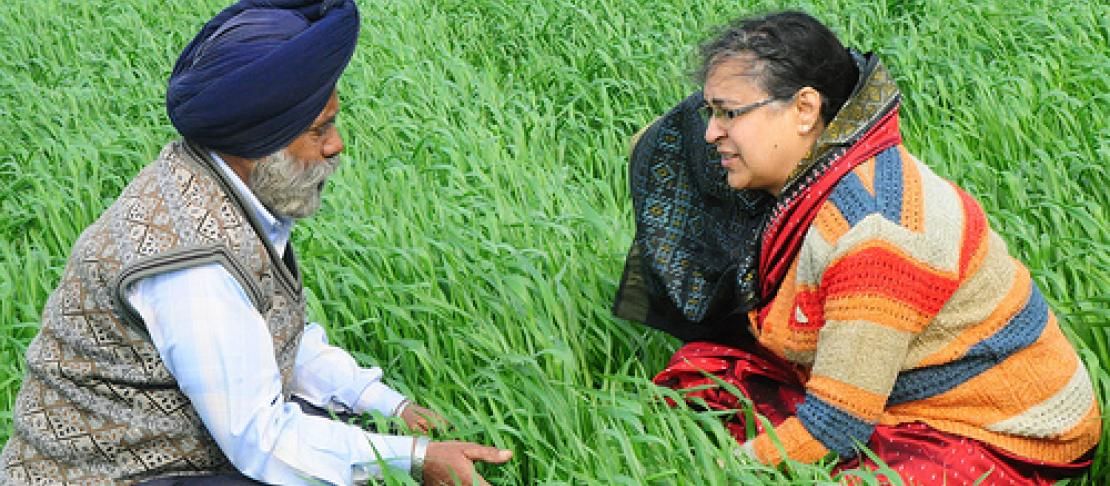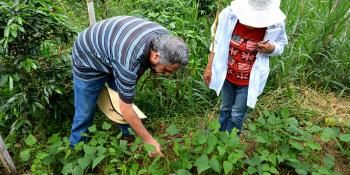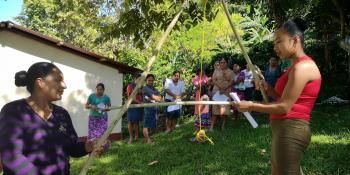Climate change policy and project review to support pro-poor mitigation and adaptation in agriculture

If poor farmers are to contribute to climate change mitigation, mitigation options need to have a positive impact on livelihoods. In fact, what may be needed are livelihood options that produce mitigation co-benefits, as well as and carbon finance schemes that provide additional incentives to help farmers to meet both livelihood and environmental objectives.
To better understand the current state of climate change mitigation and adaptation projects and policies in our focal regions, the CGIAR Climate program is collaborating with students from Harvard University's Kennedy School who have are spending their summers in West Africa and South Asia to talk to policy makers, development organizations and farmers about mitigation and adaptation activities.
The researchers include current students and those who have finished their degrees. Sonam W. Wang (PhD) is working on mitigation and adaption policy in the South Asian countries of Bhutan, Nepal, Bangladesh and India; Alicia Harley is working on mitigation and food security projects in India; Priti Narasimhan is working on mitigation and adaptation policy in Ghana and Hamissou Samari is working on mitigation and adaptation policy in Mali, Senegal and Burkina Faso. In addition, Jean Lee from the University of Vermont is examining mitigation and adaptation projects and policies in Ghana.
The researchers are are collecting information on national policies, specific projects and other efforts in these regions that relate to smallholder farmer adaptation to climate change and agriculture related mitigation efforts. They will further analyse these policies and projects through the lense of maximizing co-benefits, in other words, taking into account tradeoffs and synergies of climate change policies and projects with food security, poverty alleviation and gender equality. The final product of their work will be an inventory of ongoing and potential policies and projects and reports that examine the potential for carbon markets to benefit smallholder farmers in the study areas.
Resulting reports should be useful for anyone seeking to better understand the state of play in these regions and key issues relating to agriculture, food security and climate change.
Blog written by Priti_Narasimhan [at] hks12 [dot] harvard [dot] edu (Priti Narasimhan). Comments are welcome below.


